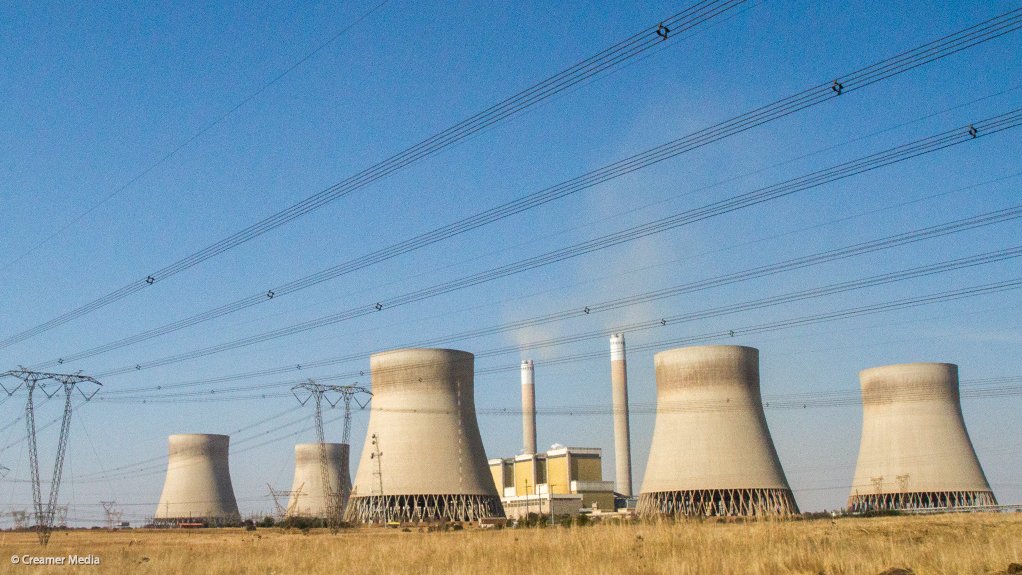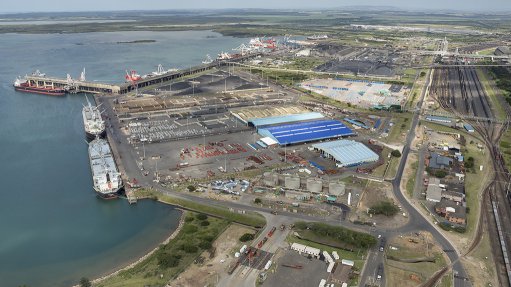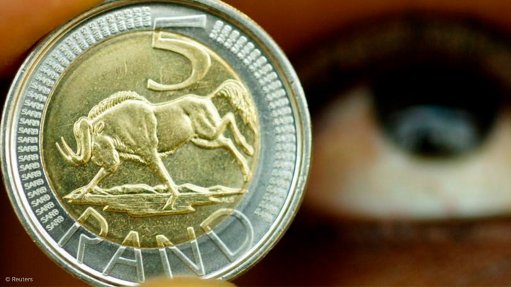Eskom again moots 20 GW clean-energy build programme
Eskom will replace its declining coal capacity with clean-energy options in line with country policy and the Just Energy Transition, Eskom GM for primary energy Dan Mashigo told participants at a conference on coal and the energy transition.
Speaking on behalf of Eskom CEO Dan Marokane, Mashigo reported that the State-owned company had a 20-GW-plus generation project pipeline, including 6 GW of solar PV, 4 GW of hybrid wind-PV-battery projects, 4 GW of gas-to-power, 3 GW of nuclear and 3.5 GW of hydro, wind and battery storage.
He did not indicate how these projects would be financed, or how they were reflected in the Integrated Resources Plan (IRP), which is currently being revised. However, Mashigo indicated that they would be pursued in line with allocations provided under the IRP.
Eskom would seek to leverage its competitive advantages in relation to access to land, licences, skills and decommissioned coal sites to roll-out future capacity.
A slide presented as part of the address pointed to coal’s contribution of total capacity falling from 83% of the 48 GW installed in 2025 to 48% of the 54 GW of capacity projected for 2035.
Coal demand would remain “significant for some time”, but would fall steadily from more than 100-million tons yearly in 2025 to about 40-million tons in 2050, when only Majuba, Medupi and Kusile would remain operational.
The decline in coal to 2030 had been moderated by a recent decision by government to allow Eskom to operate Hendrina, Grootvlei, Arnot, Camden and Kriel until March 31, 2030, under existing emission standards, which are lax by world standards. The stations were originally scheduled to be decommissioned in phases ahead of that date.
Mashigo also restated Eskom’s interest in building small modular nuclear reactors as part of its build programme and even suggested that such reactors could be installed at decommissioned coal sites.
Article Enquiry
Email Article
Save Article
Feedback
To advertise email advertising@creamermedia.co.za or click here
Press Office
Announcements
What's On
Subscribe to improve your user experience...
Option 1 (equivalent of R125 a month):
Receive a weekly copy of Creamer Media's Engineering News & Mining Weekly magazine
(print copy for those in South Africa and e-magazine for those outside of South Africa)
Receive daily email newsletters
Access to full search results
Access archive of magazine back copies
Access to Projects in Progress
Access to ONE Research Report of your choice in PDF format
Option 2 (equivalent of R375 a month):
All benefits from Option 1
PLUS
Access to Creamer Media's Research Channel Africa for ALL Research Reports, in PDF format, on various industrial and mining sectors
including Electricity; Water; Energy Transition; Hydrogen; Roads, Rail and Ports; Coal; Gold; Platinum; Battery Metals; etc.
Already a subscriber?
Forgotten your password?
Receive weekly copy of Creamer Media's Engineering News & Mining Weekly magazine (print copy for those in South Africa and e-magazine for those outside of South Africa)
➕
Recieve daily email newsletters
➕
Access to full search results
➕
Access archive of magazine back copies
➕
Access to Projects in Progress
➕
Access to ONE Research Report of your choice in PDF format
RESEARCH CHANNEL AFRICA
R4500 (equivalent of R375 a month)
SUBSCRIBEAll benefits from Option 1
➕
Access to Creamer Media's Research Channel Africa for ALL Research Reports on various industrial and mining sectors, in PDF format, including on:
Electricity
➕
Water
➕
Energy Transition
➕
Hydrogen
➕
Roads, Rail and Ports
➕
Coal
➕
Gold
➕
Platinum
➕
Battery Metals
➕
etc.
Receive all benefits from Option 1 or Option 2 delivered to numerous people at your company
➕
Multiple User names and Passwords for simultaneous log-ins
➕
Intranet integration access to all in your organisation





















